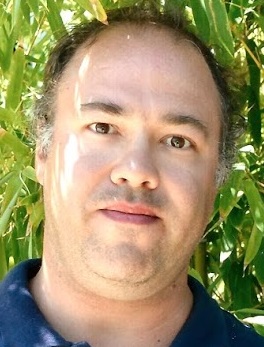Tuesday, November 5
13:30 – 15:10 Invited Special Session 1
Research on Cloud Networking in Brazil and Europe: the NECOS and Atmosphere projects
 Networking the cloud, cloudifying the network
Networking the cloud, cloudifying the network
Luis M. Contreras, Telefónica, Spain
Abstract: Network operators are nowadays involved in a deep transformation process transitioning towards a network architecture where several computing execution environments will host a number of functions and applications for attending existing and novel service offerings, including slicing. In this evolution the transport network plays a central role providing a connectivity continuum end-to-end. This session will present the challenges ahead from the perspective of a network operator in this transition pursuing a new effective, operational and integrated architecture.
Speaker: Luis M. CONTRERAS (http://lmcontreras.com/) earned a Telecom Engineer degree at the Universidad Politécnica of Madrid (1997), and holds an M. Sc. on Telematics from the Universidad Carlos III of Madrid (2010). Since August 2011 he is part of Telefónica I+D / Telefónica Global CTIO unit, working on SDN, virtualization, 5G transport networks and their interaction with cloud and distributed services, as well as on interconnection topics. He is part-time lecturer at the Universidad Carlos III of Madrid. Before the position in Telefónica he worked in Alcatel and Orange. He is actively involved in research and innovation activities, with 40+ papers published in relevant journals, magazines and conferences. He has participated on a number of research and innovation projects funded by the EU and the ESA. Currently he is working on the EU-BR project NECOS, the EU-TW project 5G-DIVE and the EU H2020 projects 5-TRANSFORMER, 5G-EVE and 5GROWTH. On the standardization arena, he is active contributor to IETF (authoring five RFCs), ETSI, GSMA, ITU and ONF.
 Software Defined Networking in the Atmosphere project
Software Defined Networking in the Atmosphere project
Giacomo Verticale, Politecnico di Milano, Italy
Abstract: The Softwared Defined Network paradigm makes it possible to bring to life network services easily, quickly, and at a scale. The Atmosphere project uses control plane and data plane programmability to build federations of networks across multiple data centers. Traffic between data centers is routed according to the QoS requirements of the federated networks. This talk will present the Atmosphere vision of network federation and the technical challenges and solutions.
Speaker: Giacomo Verticale is associate professor at Politecnico di Milano, Italy. He holds a PhD in Telecommunication Engineering defending a thesis on the performance of packet transmission in 3G mobile radio. He was involved in several European research projects advancing the Internet technology at the CEFRIEL research center (BASS, MOICANE) and then at Politecnico di Milano (STRONGEST, COMBO, Atmosphere). He has been involved in several Italian technology trials on smart metering, smart grids, and 5G. His current interests focus on the security issues of the Smart Grid and on Network Function Virtualization.
Wednesday, November 6
10:40 – 12:20 Invited Special Session 2
Future Networks
 Network 2030: How to turn IP into a zombie
Network 2030: How to turn IP into a zombie
Cedric Westphal, Futurewei Technologies, Santa Clara, CA, USA
Abstract: IP is so entrenched in our everyday life that it can’t be gotten rid off. Yet, as future applications stretch the current network architecture to its limit, it has become essential to rethink what a network will look like in the long term. In particular, AR/VR, holographic communications, sensory communications will impose a diversity of requirements that IP cannot support. Dr. Westphal will discuss the limitations of IP and how new protocols can help support these requirements.
Bio: Cedric Westphal is a principal research architect with Futurewei Technologies, in Santa Clara, CA, USA. Previously, he has been an adjunct associate professor with the University of California, Santa Cruz, and has worked as a researcher with Docomo Labs USA and Nokia Research Center. He has published over a 100 publications in referred journals and conferences and has chaired many ACM and IEEE conferences, including IEEE Infocom. He holds a PhD from UCLA and a MSEE from both UCLA and Ecole Centrale Paris.
 Network Technologies for 2030 Networks
Network Technologies for 2030 Networks
Toerless Eckert, Futurewei, USA
Abstract: Future networks 2030 and beyond will have a diversity of requirements that can not be supported with today’s TCP/IP(v6) Internet technologies alone. In addition, the Internet is going to evolve too, opening the opportunity to easier deploy new technologies. This talk discusses key evolving areas of networking research towards that end: QoS services to support high precision, coordinated and qualitative communications, flexible new packet protocol headers, efficient traffic engineering control planes and flexible addressing.
Biography: Toerless Eckert is a Distinguished Engineer at Futurewei USA in Santa Clara California, where he is working on the long term evolution of networks. Toerless has broad experiences in distributed systems and network technologies including layer 2, routing, quality of service, IP multicast, application integration and automation. He has been working for more than 30 years for public research organizations and commercial vendors in roles that include planning, building and operating networks; education, research, development and standardization.


